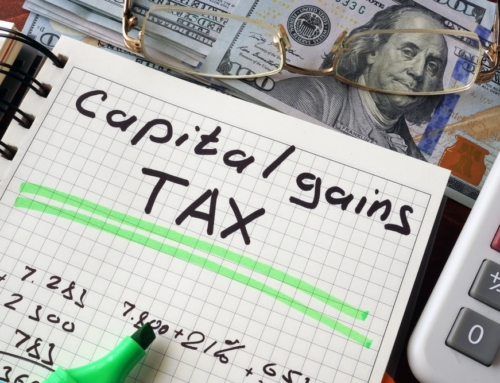Paying taxes is a part of life, but taxes can be easy to budget for when you know about them well in advance. Unfortunately, you may be on the hook for taxes you don’t regularly take into account—and these so-called “hidden taxes” can quickly bust your budget.
Tax tips: Scan your receipts for hidden taxes
“Of course, [the taxes you pay] really depend on where you’re located in the country because some jurisdictions have a tax on certain things and others don’t,” says Melissa Lebont, tax director with the American Institute of Certified Public Accountants, the world’s largest association representing the accounting profession.
Taxes vary based on state, but they can even be different from county to county, Lebont says. The additional taxes a person pays can be as much as half, or in some cases more than half, of the overall amount he or she pays.
So, why are taxes hidden? According to the AICPA’s 360 Degrees of Financial Literacy website, “Hidden taxes largely go unnoticed. The result may be that this can make it difficult for us to choose wisely the goods and services that we purchase or to have a true accounting of our total tax burdens.”
Here are some hidden taxes you may be paying:
Cell phone taxes. The charges on cell phone bills are usually separated out. In addition to the actual service charge and any activation fees, you’re likely also paying state and federal cell phone taxes, Lebont says.
Gasoline taxes. Every time you go to the pump, you’re paying taxes for gas, Lebont says. As with cell phone taxes, gas is often taxed by both state governments and the federal government.
Hotel or accommodations taxes. If you travel, you’re likely paying extra taxes for your hotel, bed and breakfast, or other accommodation. This can be a hefty tax, paid to federal, state, and local governments.
Utility taxes. Taxes are usually assessed for cable, landline phones, electricity, and natural gas. In general, utilities have associated taxes, according to Lebont.
Cigarette and alcohol taxes. The taxes on items like these are often called “sin taxes,” and they can vary greatly from state to state.
Use tax. People are usually aware that they’re paying a sales tax, Lebont says, but they may be unaware of the use tax.
If you buy something online, in another state, or from a seller not authorized to collect tax (such as from an individual on an online marketplace), the seller may not charge a sales tax. You may, however, be required to pay a tax after the fact to your state. This tax is typically paid with your state income tax return.
Other taxes through your paycheck. Although you probably know a percentage of your pay goes to income tax, you should also pay attention to the other taxes that come out of your paycheck, Lebont advises. These include Social Security taxes and Medicare taxes.
In most states and some cities (like New York, for example), an additional tax can be levied on income as well, she says.
The AICPA offers a tax estimate calculator that includes hidden taxes. For free, members of the public can “get a clearer view of the taxes they pay,” Lebont says.
To use the calculator, go to www.totaltaxinsights.org and select your state, then answer a few questions about your exact location, income, bills, and spending habits.
Michelle Stoffel Huffman is a researcher and staff writer for Think Glink, Inc. Prior to joining Think Glink, Michelle worked for the Chicago Tribune as a daily news reporter and community manager, covering local government, business, tax issues, and crime. She now specializes in real estate industry news, consumer financial reporting, and home design and decor. She is a graduate of DePaul University in Chicago.






